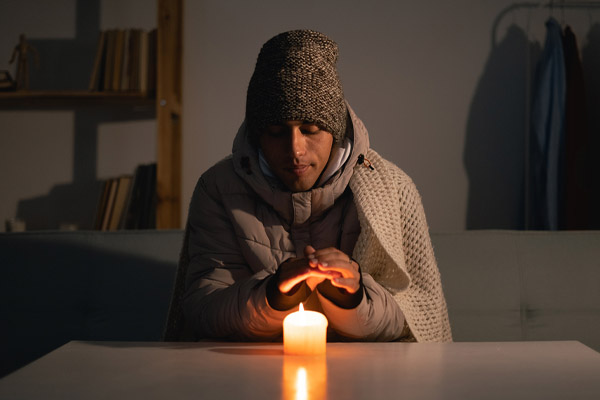
Heating and air conditioning (HVAC) systems produce warm or cold air for your home. This lets you maintain your home’s safety and comfort all year round. An HVAC unit is a complex piece of equipment made up of different parts that allow it to operate effectively. Unfortunately, it can experience problems over time, just like any other machine. Five of the most common HVAC emergencies your system may encounter are a refrigerant leak, clogged lines, electrical problems, negative air pressure, and a gas leak.
Your system will stop working as it should when these emergencies happen. Your home may become extremely hot or cold. This article discusses the different HVAC emergencies, allowing you to identify and prevent them from worsening.
Top 5 HVAC Emergencies: Identification& Prevention
Contents
Keep reading to explore the most common HVAC emergencies that homeowners experience.
Problems with a Clogged Condensate Line
The condensation from the evaporator goes through the drain line and into the drain pan. Muck and algae can clog this line over time, especially if the drain pan is full of water. The clog can worsen and cause water damage to the system. Some signs that point to a clogged drain line are mold or rust in your unit and increased levels of humidity.
HVAC Refrigerant Leak
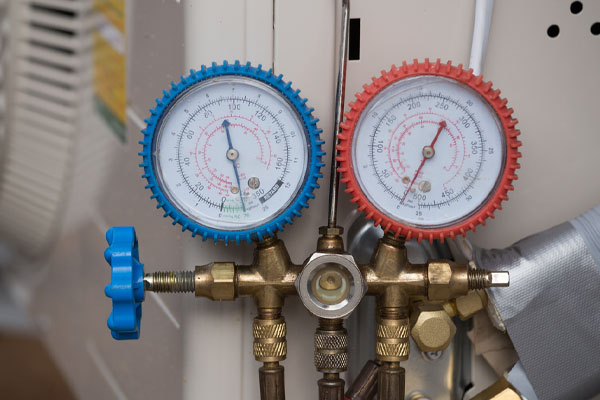
A refrigerant is a chemical vital in the air conditioner’s refrigeration cycle, which cools the air to be distributed around your home. However, the refrigerant lines can have worn-out joints and connections, and vibrations can cause leaks. As a result, your system cannot cool your home properly, as it will generate warm air instead of cold air.
If you suspect a refrigerant leak in your unit, look for several signs. Apart from the register blowing out warm air, the indoor unit will produce a hissing noise. Holes and cracks in the coil make this sound. A sudden spike in your electricity bill can also be because of a refrigerant leak. Another symptom is frozen coils. A leak means the air conditioner refrigerant cannot circulate properly via the coils, and the condensation can cause the coils to freeze.
Electrical Issue
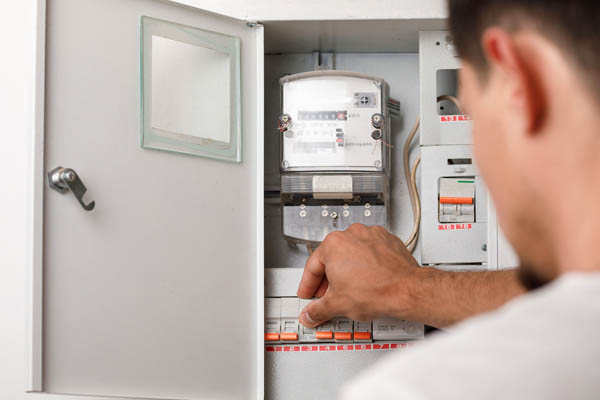
Electrical problems can be due to an interruption in the electrical system. The first step you should do is check the circuit breaker to ensure it is “on.” If you have a fuse box, there may be a blown fuse. Replace it as needed. You should also check the emergency shut-off switch. If the issue persists, call a professional for assistance. The problem may be with the electrical contactor. Electrical issues may mean your home is without heat. This is an inconvenient and life-threatening situation to be in, especially if it’s in the middle of winter or you live in a place with a cold climate.
Gas Leak
It is very dangerous if there’s a gas leak in your home. It can cause an explosion if it isn’t detected soon. Several signs that your home has a gas leak are hissing or whistling noises, rotten eggs or sulfur smell permeating around your home, and dead houseplants. A professional should check your system regularly so that leaks and other HVAC emergencies are prevented from happening.
Negative Air Pressure
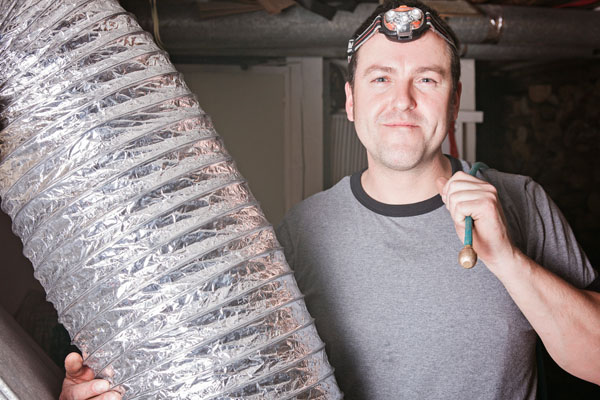
Negative air pressure is when more air is forced out of our home than pulled inside. The air gets out via gaps around doors and windows, the basement, crawlspace, attic, electrical outlets, and light fixtures. Your furnace, fireplace, and other heating systems can also draw up and pull air out, adding to the negative air pressure. Truthfully, most of the negative air pressure is created by the HVAC unit’s exhaust system.
Some signs you have negative air pressure at home are unusually hot or cold rooms, random air drafts around your home, doors opening and closing on their own, and unusual whistling noises. These signs may make you think your house is haunted but check your HVAC system first before jumping to conclusions.
Bringing in more air compared to the amount your home eliminates is the best way to get rid of negative air pressure. To achieve this, incorporate a duct to the HVAC system’s return ducting. This allows air to be brought inside the house from outside throughout the day. Another method to achieve this is to adjust the heat recovery ventilator/energy recovery ventilator (HRV/ERV).
Preventing HVAC Problems

You can perform some steps to ensure your HVAC system is in good condition. One of these is to ensure your duct receives regular cleaning. It would help if you also cleaned the HVAC system’s housing, air handler, coils, grilles, fans, and motors.
Change the HVAC system’s filters as per the recommended frequency of the system manufacturer. The filters are responsible for preventing dirt, dust, and other pollutants from being distributed throughout your home. They also protect the unit from damage, so you should ensure the filters aren’t clogged. Moreover, the evaporator coils shouldn’t be riddled with dust and debris. You can clean it by filling a spray bottle with water and mild detergent. Let the solution sit for a couple of minutes before wiping it to get rid of all accumulated debris.
Check the air conditioner for symptoms of clogged lines or water damage. Some of the revealing signs of these issues are hissing sounds from refrigerant lines and ice buildup. Call a professional right away to resolve the problem. Ensure that your HVAC unit runs without issues by scheduling yearly maintenance checks from a certified professional.
Call PFO Heating & Air Conditioning For Your Home HVAC Requirements
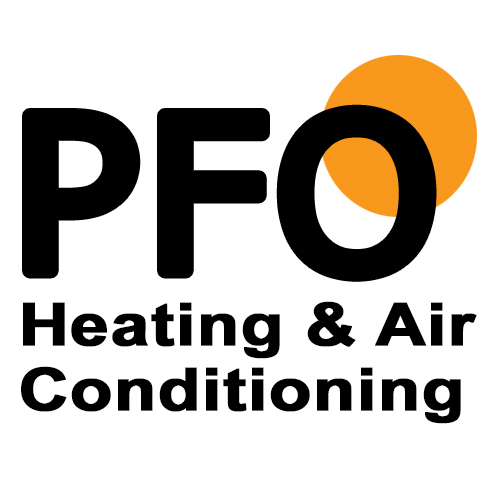 Need high-quality HVAC services in the greater Hamilton, New Jersey area? Call PFO Heating & Air Conditioning. Our company hires the best professionally certified technicians for all your heating and cooling service needs, including AC maintenance, furnace replacements, boiler installations, and more. Our friendly techs have the right tools, experience, and knowledge to conduct accurate HVAC services at all times.
Need high-quality HVAC services in the greater Hamilton, New Jersey area? Call PFO Heating & Air Conditioning. Our company hires the best professionally certified technicians for all your heating and cooling service needs, including AC maintenance, furnace replacements, boiler installations, and more. Our friendly techs have the right tools, experience, and knowledge to conduct accurate HVAC services at all times.
PFO Heating & Air Conditioning offers the most competitive heating and cooling service prices in the locality. If you need to replace your HVAC system, we can recommend the most suitable one for your home within your budget. We always prioritize your home’s energy efficiency, indoor air quality, and comfort. Schedule an appointment by calling PFO Heating & Air Conditioning today and receive a free, in-home estimate.
Click here to contact us now or call us at (800) 253-9001 to find out more! Click the link to view our service area.



